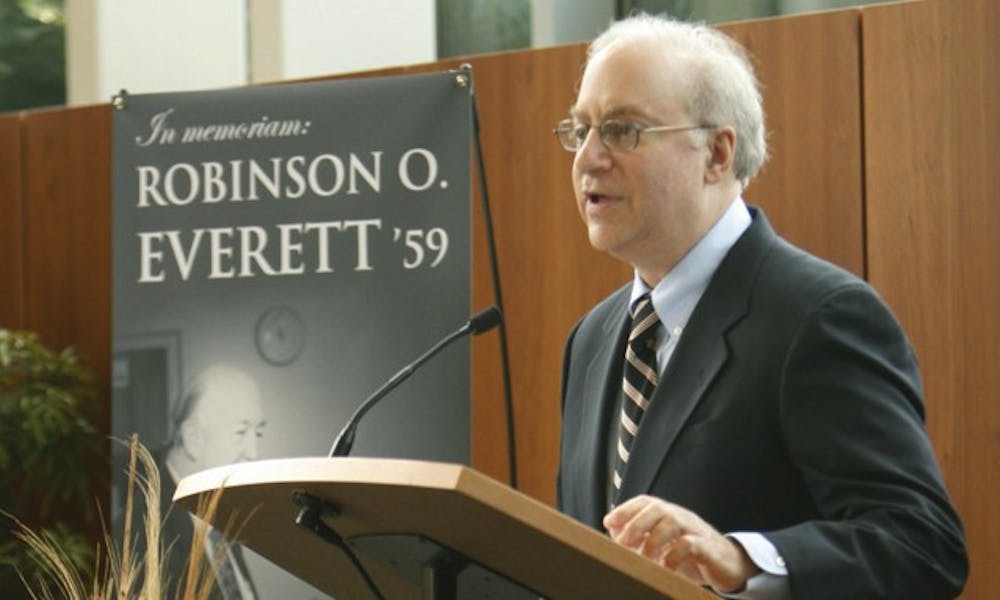A memorial ceremony was held Thursday at the School of Law for Professor Robinson Everett, who passed away June 12. The participants commemorated Everett and his 51 years teaching as a professor, as well as his contributions to the country as a senior judge for the U.S. Court of Appeals for the Armed Forces.
Everett, Law ’59, was described as a “wonderfully kind and brilliant man” by James Dever, U.S. District Judge for the Eastern District of North Carolina.
“He was a wonderful teacher, mentor for all the Duke law school students who we talked to... [he] rendered great services to the United States,” said Dever, who had been Everett’s student, colleague and friend.
Everett is the youngest faculty member the law school has ever hired, starting his teaching career at the age of 22. Besides teaching classes, Everett also had a “major impact on the field of national security,” said Scott Silliman, executive director of the Center on Law, Ethics and National Security, which Everett founded.
Silliman noted that Everett also served as counsel to the Subcommittee of Constitutional Rights on the U.S. Senate Committee on the Judiciary, where he assisted the development of the Military Justice Act of 1968.
Beyond his own accomplishments, Everett was also very accessible to students.
“He’s so personal, so welcoming, almost like a family,” said James Markham, Law ’07 and assistant professor of public law and government at the University of North Carolina at Chapel Hill. Markham added that almost every student built a personal relationship with Everett, as everybody in Everett’s classes would be invited to Everett’s home and many were treated to a barbecue.
“[Everett] energized many lonely or lost students to make them happy at Duke law school,” said William Reppy, Charles L.B. Lowndes emeritus professor of law.
Law School Dean David Levi said Everett was a generous source of ideas and assistance for both the law school and its students.
“Often upon hearing a student’s problem, [Everett] would pay the tuition bill, pay the traveling [costs] to job interviews for students,” Levi said. “Offering a helping and guiding hand to these young people is his special mission. And he is just so good at it.”
Everett’s students will remember him “standing tall and slightly leaning toward the student” and proposing challenging questions, said Theresa Newman, clinical professor of law, who had also been a student of Everett’s.
Reppy said Everett was also an ardent supporter of Duke Athletics, particularly the football program.
“I believe that I won’t—and neither will anyone else—access the level of [Everett’s] support for Duke football,” he said.
Reppy added that he believes Everett missed fewer than three home football games in the last 30 years.
Levi concluded the memorial by revealing Everett’s portrait, which will hang on the fourth floor of the law school building among other portraits of faculty who have devoted themselves to Duke Law.
“His colleagues will remember him as a gentle and unassuming force of nature,” said Professor Clark Havighurst, William Neal Reynolds professor emeritus of law.
Get The Chronicle straight to your inbox
Signup for our weekly newsletter. Cancel at any time.

